Season 2/Episode 7, "Wonders Never Cease"
As New York celebrates a historic event, Bertha reconsiders her loyalty to the Met while Marian has doubts about her future.
In this Episode…
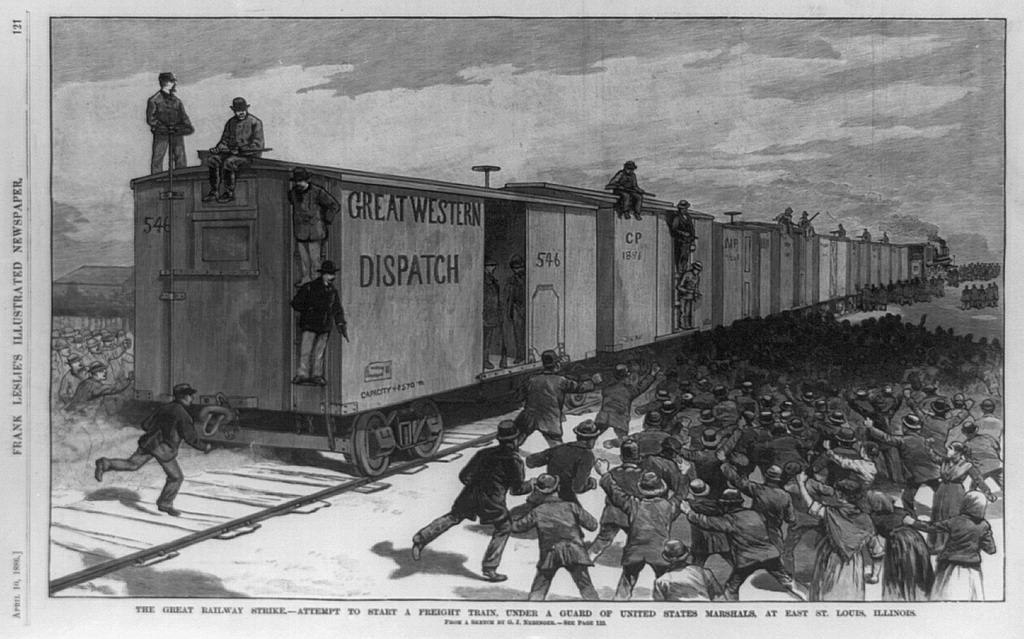
☞ George Russell mentions the violence of the Great Railroad Strike of 1877, which lasted for 52 days across several cities in the eastern U.S. and Midwest and resulted in the deaths of approximately 100 people. Concurrent with this strike was a three-day pogrom against Chinese immigrant workers in San Francisco. Mr. Russell’s claim that his tactics in splitting the union will work partially due to hatred of Catholic immigrants – such as the Irish immigrants who appear later in the episode – and Jewish people reflects this xenophobia.
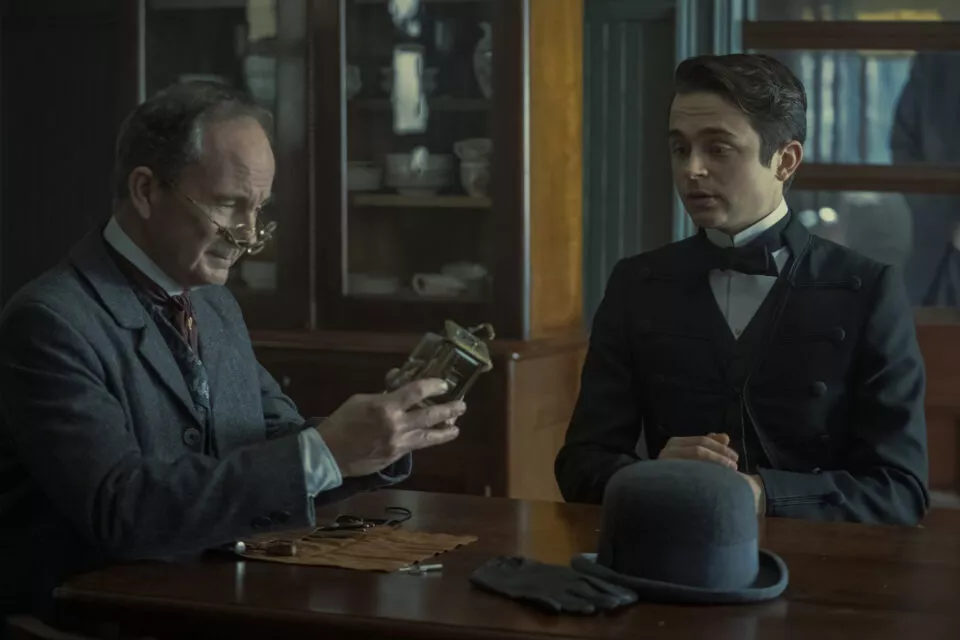
☞ Jack Trotter, footman for the van Rhijn house, meets with an expert from a clockmakers’ society called the Deutscher Uhrmacher Verein, who examines his invention for an improved alarm clock. German immigrants founded the Deutscher Uhrmacher Verein, later called Uhrmacher Verein der Stadt New York and New Yorker Uhrmacher Verein, in 1866. As clock and watch makers from other nationalities joined its ranks, the name was less accurate, and in 1930 it became the Horological Society of New York.
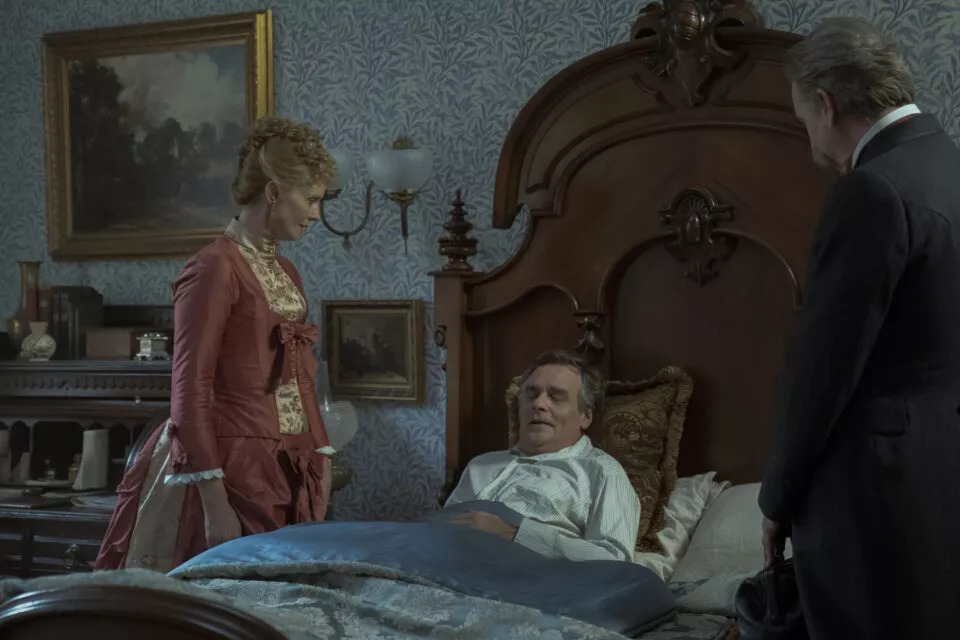
☞ While we do not know the nature of Luke Forte’s cancer or the method of his diagnosis, we can situate the disease in the medical discoveries of the period. By 1883, scientists had identified cancer as being composed of cells, had identified and named the process of metastasis, and had begun to note demographics of cancer diagnosis. Hereditary basis for cancer were not part of the medical discussion until a few years later. It would be over a decade before the discovery of X-rays.
☞ The scene in which Russell and Henderson spar over labor rights even while shaking hands begins with a bang – and a flash. In the 1880s, flash photography required pyrotechnics. Flash powder, lighted by hand, was made of a metallic fuel and an oxidizer. This combination burns very quickly, providing enough light for a photograph.
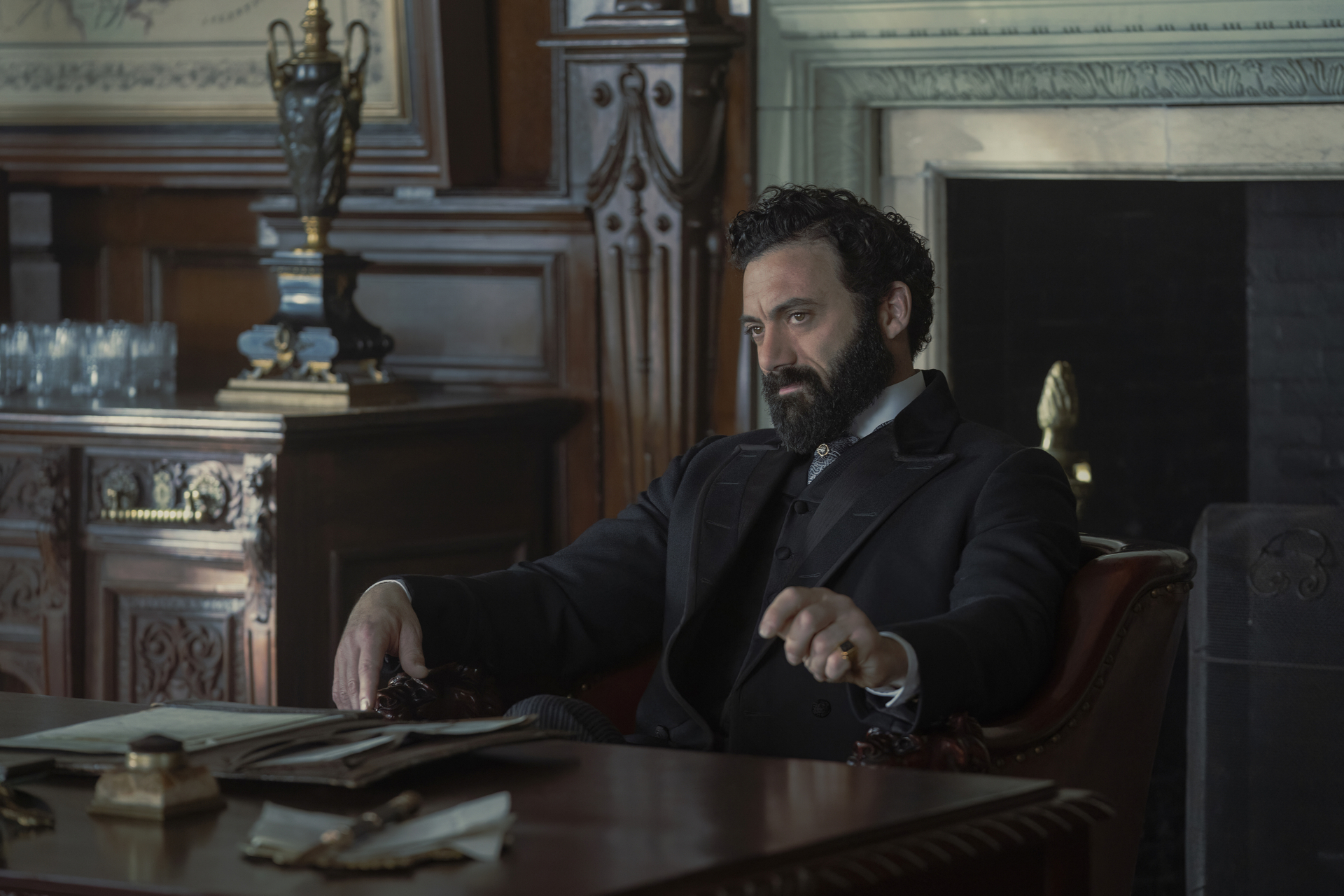
☞ Maud Beaton’s deception is reminiscent of the recent news story of Anna Sorokin/Anna Delvey, who deceived New York Society by posing as a wealthy heiress. Some of Maud’s contemporaries among scam artists included Bertha Heyman, who conned men by pretending she was wealthy but unable to access her money, and donated most of her loot; Adele Spitzeder, a German banker who ran the first known Ponzi scheme in history; and Sophie Beck, who accepted investments for a false-front company out of a luxurious apartment and absconded to Europe with $2 million.
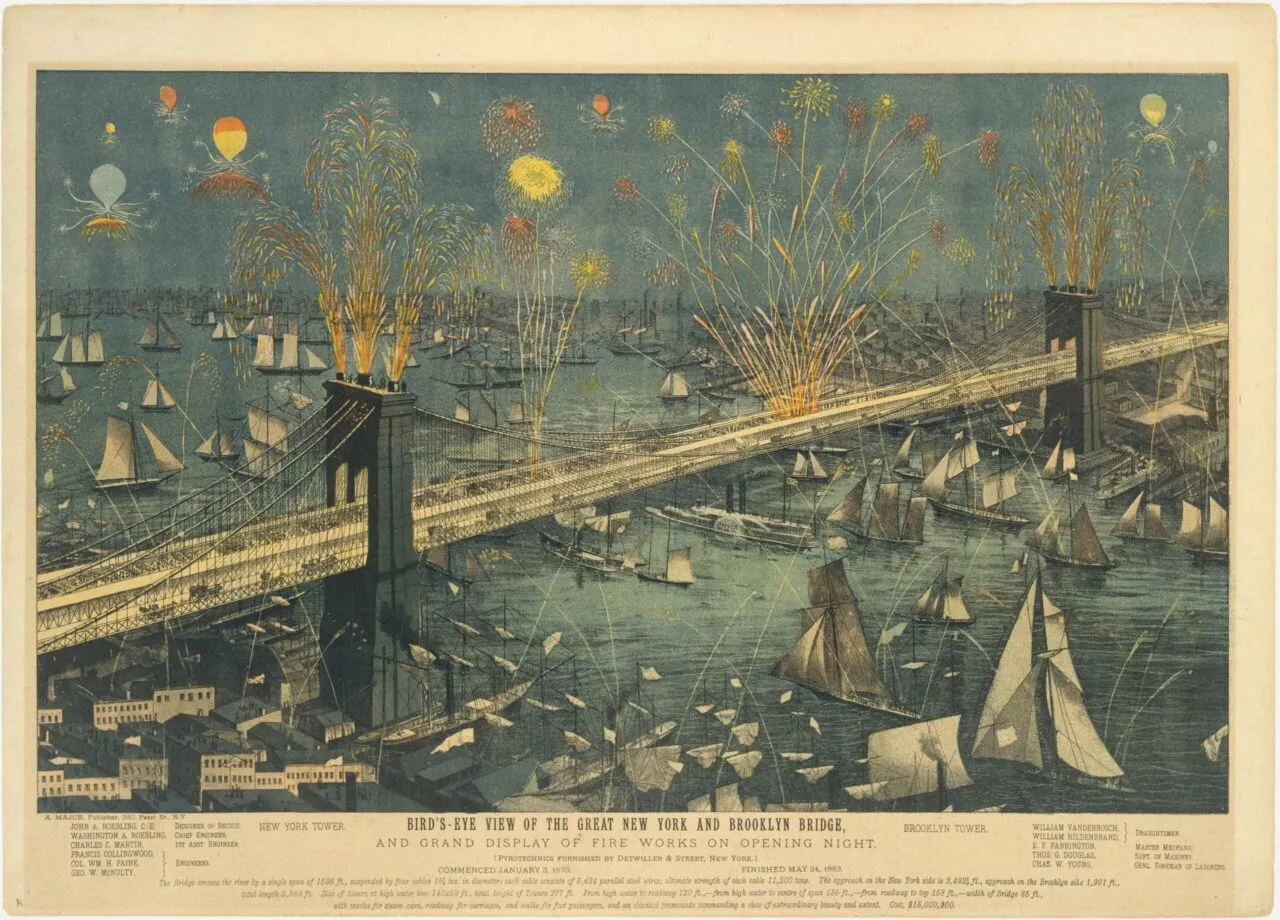
☞ Emily Roebling did receive recognition for her vital role in the Brooklyn Bridge’s construction at its opening, in a speech by Abram Stevens Hewitt, a lawyer and industrialist who would become New York mayor in 1887. Learn more about Emily Roebling
☞ One year prior to the action of the episode, in 1882, Phillip A. White became the first Black member of the Brooklyn Board of Education. (Brooklyn was a separate municipality from New York City until 1898.) White opposed forced segregation, and integration rapidly grew more common by 1890.
More Episode Guides

Deep Dive into the Show
Learn about the people, places and events depicted in Julian Fellowes' popular historical drama series.
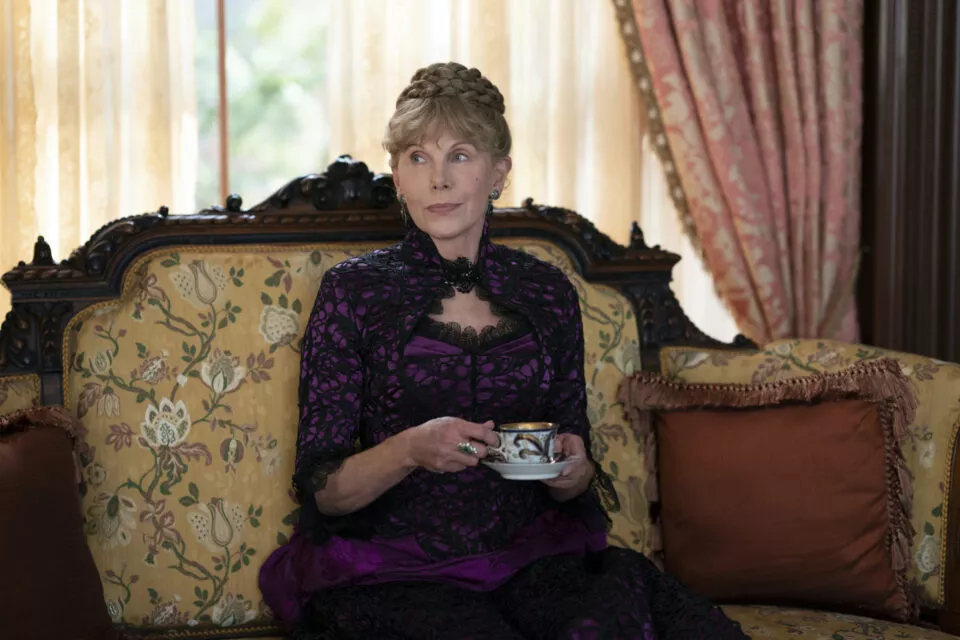
Season 1/Episode 1, "Never the New"
In 1882, Marian arrives at the home of her “old money” aunts Agnes and Ada, whose new neighbors vie to break into New York high society.
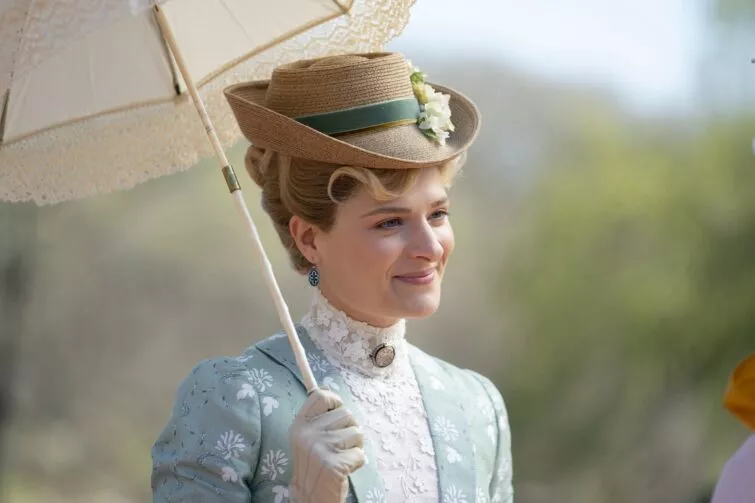
Season 1/Episode 2, “Money Changes Everything”
Marian receives a visit from Tom Raikes, whose legal advice Peggy seeks. The Russells take center stage at a charity bazaar.
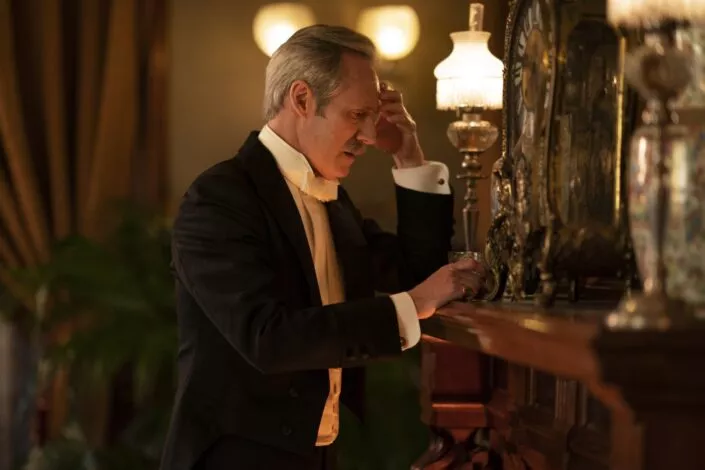
Season 1/Episode 3, “Face the Music”
George faces a surprise development. Marian sees Mr. Raikes against Agnes’ wishes. Ada runs into an old friend. Peggy gets an opportunity.
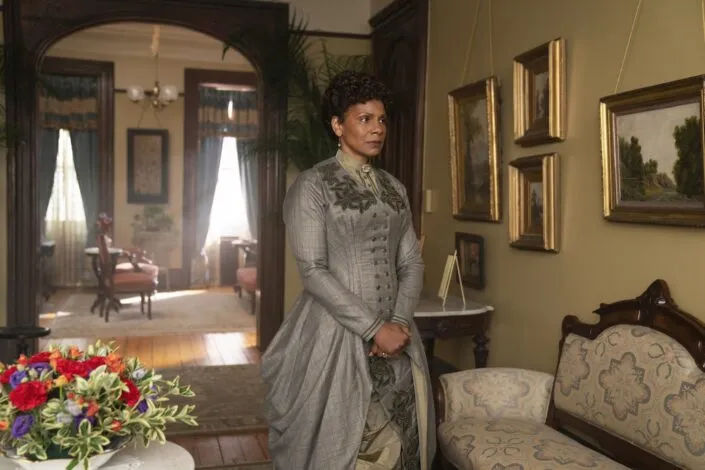
Season 1/Episode 4, “A Long Ladder”
Marian learns more about Mrs. Chamberlain. George makes a deal to benefit Bertha. Peggy meets a trailblazing newspaperman.
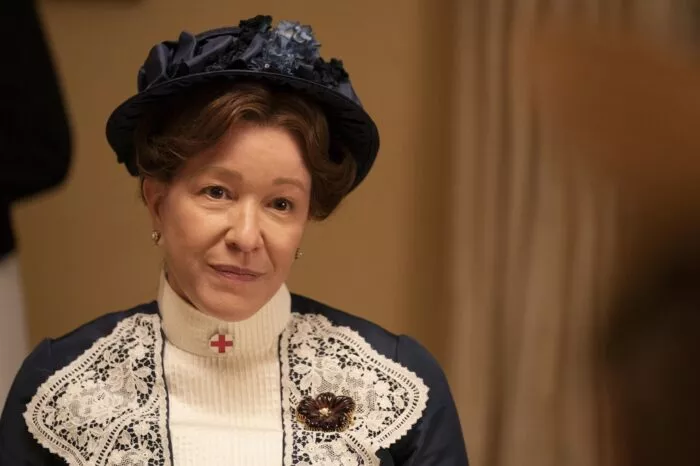
Season 1/Episode 5, “Charity Has Two Functions”
Bertha, Marian, Aurora, and Peggy make an overnight trip to see Clara Barton speak. Gladys’ desired beau is invited to dinner.
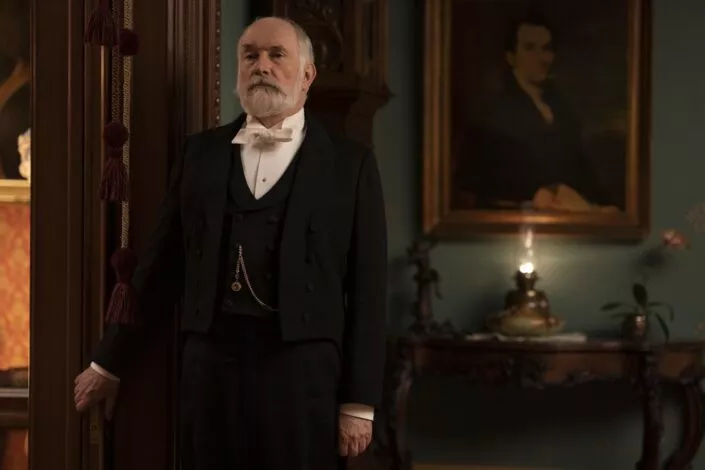
Season 1/Episode 6, “Heads Have Rolled for Less”
Mr. McAllister’s visit to the Russells shakes the aunts’ household. George aims to control the narrative. Marian considers her feelings.
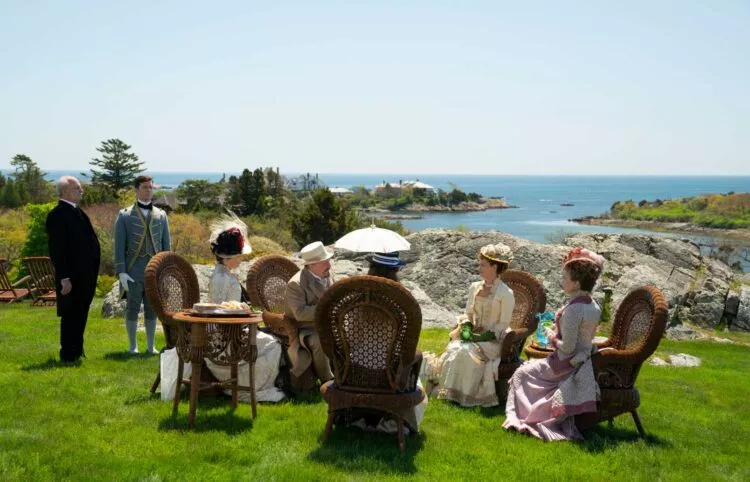
Season 1/Episode 7, "Irresistible Change"
As a historic moment captures the city, Agnes vows to protect her family’s reputation, while Larry’s career plans rub George the wrong way.
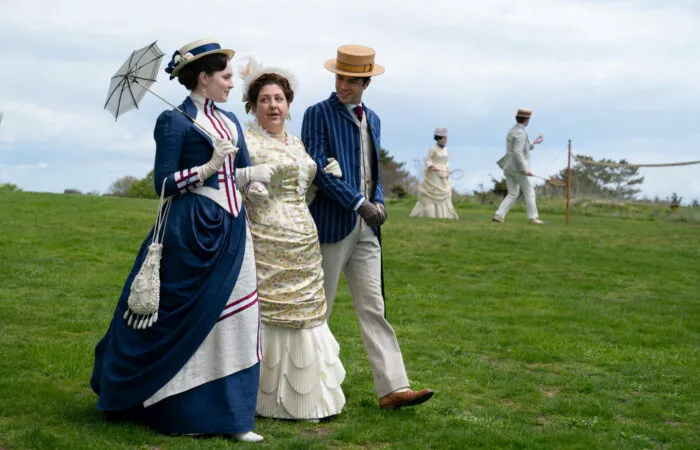
Season 1/Episode 8, "Tucked Up in Newport"
Peggy reveals the truth about her past, while George’s day in court arrives, and Marian considers her romantic future.
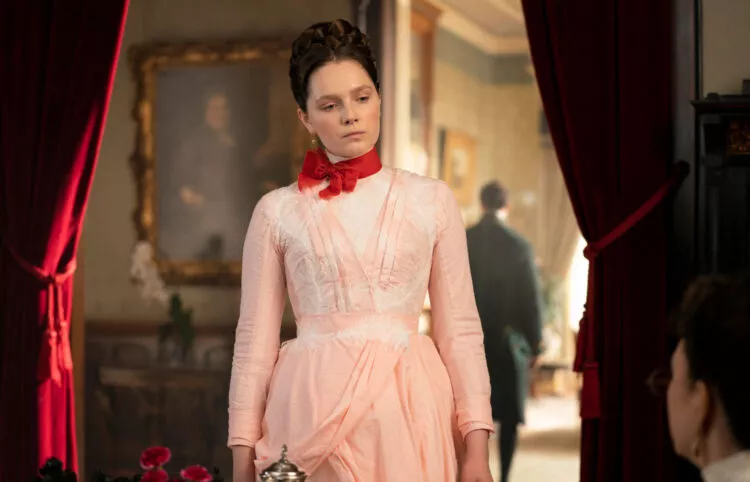
Season 1/Episode 9, "Let the Tournament Begin"
Marian’s grand plan is threatened. Bertha and Mrs. Astor lock horns over Gladys’ debut. Peggy is stunned by a major reveal.
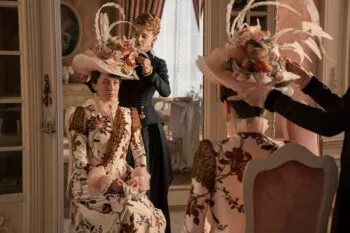
Season 2/Episode 1, “You Don’t Even Like Opera”
Agnes shares news of her nephew Dashiell's imminent arrival in New York. Bertha decides to back the new Metropolitan Opera House.
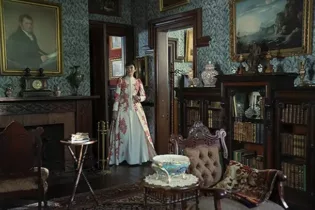
Season 2/Episode 2, “Some Sort of Trick”
Kingscote makes its debut as the home of widow Blane, with whom Larry starts an affair. Peggy is welcomed back to the van Rhijn house by almost everyone. Oscar's hopes are dashed, while Marian fends off a suitor.
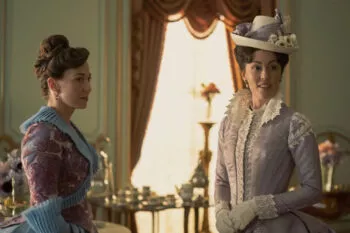
Season 2/Episode 3, “Head to Head”
A surprising guest attends Bertha's fundraiser and starts trouble. Larry begins renovations at Mrs. Blane’s house, aka Kingscote. Peggy presses her editor to let her go to Tuskegee. Oscar Wilde charms society, but his play does not.
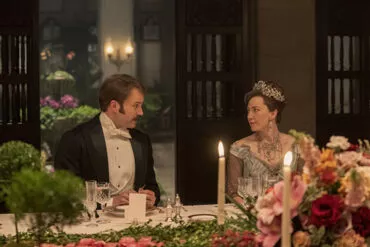
Season 2/Episode 4, “His Grace the Duke”
Bertha angles for position with the visiting Duke of Buckingham. With Marian’s help, Ada continues to see Mr. Forte. Peggy travels to Alabama and meets Booker T. Washington. Mr. Russell is confronted by angry critics of his labor practices.
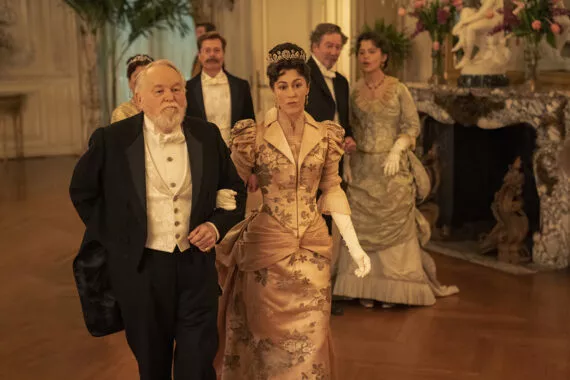
Season 2/Episode 5, “Close Enough to Touch”
The Marble House Dining Room is the setting for Bertha Russell’s dinner for the Duke of Buckingham. Peggy narrowly escapes danger in Alabama. Ada’s engagement causes conflict between her and Agnes.
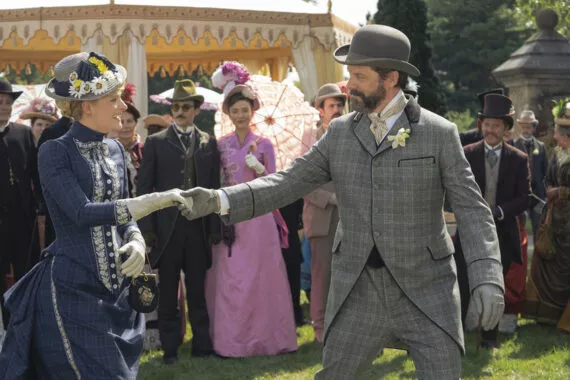
Season 2/Episode 6, “Warning Shots”
Bertha’s opera house project is far from harmonious. George goes to Pittsburgh to deal with a potential strike by his steel mill workers. Peggy takes up the cause of schooling for Black children in New York City.
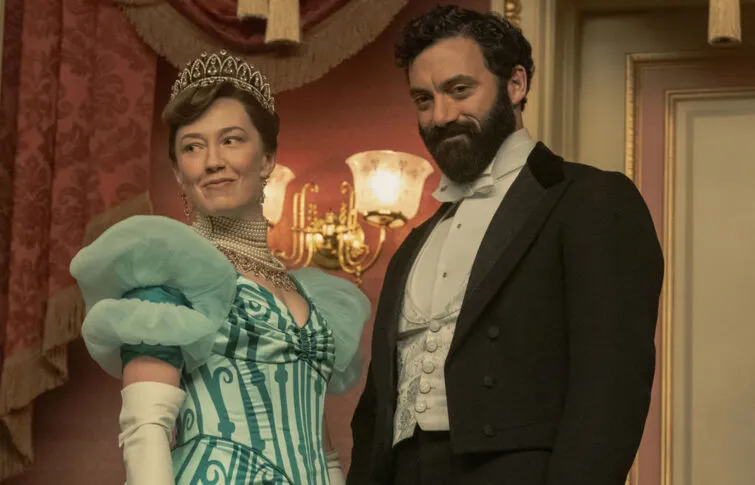
Season 2/Episode 8, "In Terms of Winning and Losing"
Marian confesses her true feelings. Jack receives welcome news. Bertha and Mrs. Astor make their final moves in the opera war.

